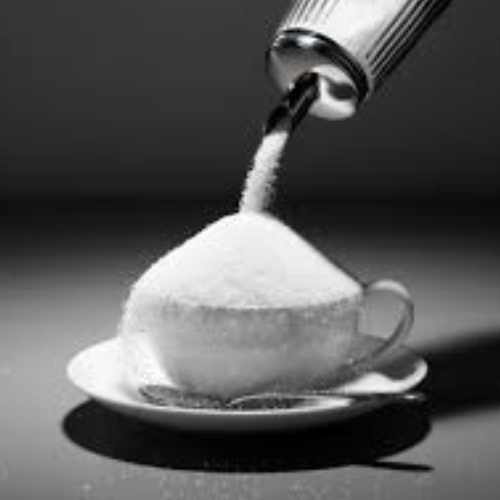Experts have urged increased initiatives to boost sugar production in Nigeria to meet growing demand. Sugarcane consumption in the country has steadily risen, averaging 1.7 per cent annual growth since 2017, reports The Nation.
The Nigerian sugar market is expected to witness significant expansion in the coming years, driven by strong domestic demand, rising investment, and favourable government policies. Analysts predict that the market could surpass $2.5 billion by 2030, with an annual growth rate of 5.37 per cent.
Despite these prospects, the sector faces hurdles in increasing domestic production. Challenges include the impact of climate change on sugarcane yields, poor infrastructure, and insufficient storage and transportation facilities. Nigerian sugarcane farmers struggle with low yields due to outdated farming practices, lack of quality inputs, and inadequate mechanization. Furthermore, the country’s sugar processing capacity remains limited, making it difficult to meet rising demand for refined sugar.
In response, experts have called for government and industry stakeholders to collaborate on enhancing productivity, expanding processing capacity, and fostering a more supportive environment for local producers. They recommend exploring the production of refined sugar, brown sugar, and sugar substitutes. With improved production, Nigeria could become a key sugar exporter to neighbouring countries.
Dr. Femi Egbesola, President of the Association of Small Business Owners of Nigeria (ASBON), criticized the National Sugar Master Plan, saying it has yielded minimal results.
“Nigeria’s sugar production still falls short of meeting local demand, forcing reliance on imports. To achieve self-sufficiency, the government must implement a new Sugar Master Plan that addresses the sector’s major challenges,” he said.
Egbesola highlighted various challenges, including inadequate raw materials, poor irrigation, lack of mechanization, insecurity, and insufficient funding.
“To boost productivity, the industry must be restructured for efficiency. More cane mills should be established across sugar-producing areas. Additionally, training programs and intervention initiatives should be provided to processors and stakeholders,” he added.
Prof. Abel Ogunwale, Provost at the College of Agricultural Sciences and Renewable Natural Resources, Ladoke Akintola University, emphasized the importance of expanding cultivation amid rising insecurity and the use of sugarcane for ethanol production.
“As the Nigerian Sugar Master Plan comes to an end this year, there is an urgent need to enhance cultivation while addressing security concerns and ethanol production demands,” he stated.
Ogunwale noted that policies and incentives under the plan aimed to increase domestic production, reduce sugar imports, generate jobs, and support ethanol production and electricity generation.
“To boost cultivation, the government must support research institutions like the National Cereal Research Institute in Niger State and the University of Ilorin Sugar Research Institute to develop high-yielding, early-maturing sugarcane varieties suited for different ecological zones,” he said.
He also urged the government to encourage private sector investment in sugarcane farming and ethanol production while improving security in sugar-producing regions.
“Training programs for farmers and researchers in sugar production must be intensified. A lack of scientific expertise is a major hurdle in sugar research and development, limiting the sector’s growth. The government must support capacity-building efforts to enhance productivity,” Ogunwale stressed.
He called for targeted financial assistance for commercial sugarcane production in states such as Sokoto, Nasarawa, Benue, Kano, Jigawa, and Kebbi.
Last month, Kamar Bakrin, Executive Secretary of the National Sugar Development Council (NSDC), stated that Nigeria needs a $5 billion investment to achieve sugar self-sufficiency.
“Currently, Nigeria produces 48,000 metric tonnes of sugar annually, while consumption is around 1.8 million metric tonnes, leaving a supply gap of approximately 1.75 million metric tonnes,” he said.
Bakrin also opposed the idea of a sugar tax, arguing that Nigeria does not have excessive sugar consumption.
“Nigeria’s per capita sugar consumption is only 9 kg per year, which is low considering our large population,” he noted.
Speaking at a media event in Lagos, Bakrin highlighted that the Nigerian sugar market is valued at $2 billion but requires substantial investment for expansion.
He compared Nigeria’s production with global leaders, pointing out that Brazil produces 41 million metric tonnes of sugar annually, followed by India (36 million) and Thailand (14 million). In Africa, Egypt leads with 2.8 million metric tonnes, followed by South Africa (2.4 million) and Eswatini (0.78 million).
On the export front, Brazil dominates with 29.2 million metric tonnes, with Thailand and India following at 8.2 million and 7 million metric tonnes, respectively. In Africa, South Africa leads with 0.7 million metric tonnes, followed by Mauritius and Eswatini, each exporting 0.6 million metric tonnes.
The United States Department of Agriculture (USDA) Foreign Agricultural Service (FAS) predicts a 6 per cent increase in refined sugar exports from West Africa and other Sub-Saharan African nations for the 2024/25 marketing year, driven by growing demand.
Conversely, raw sugar imports are expected to decline by 6 per cent due to foreign exchange constraints and a projected decrease in consumption.
Meanwhile, domestic sugarcane production is forecast to grow by 7 per cent in 2024/25, reaching 80,000 metric tonnes, owing to ongoing investments in production.
A report by Knowledge Sourcing Intelligence LLP forecasts that Nigeria’s sugar market will exceed $2.5 billion by 2030, driven by urbanization, advancements in food processing, and increasing sugar consumption in the food and beverage industry.












